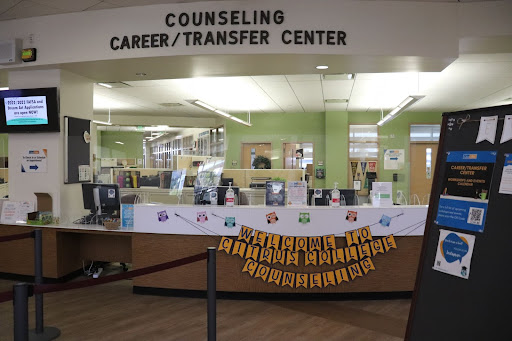
Transferring to a four-year university, although difficult, can have an overall benefit to one’s career and life.
Only around 31% of community college students consider and plan to continue their academic careers according to the National Center of Educational Statistics.
Students like Sierra Noble did not know current credits being obtained at a community college can be transferred to a four-year university.
“I had no idea I could use these credits at my next college until I had my zoom meeting with my counselor,” Noble said.
Community colleges don’t often transfer credits due to the courses not being transferable, so students that go to universities such as Citrus or Mt. Sac should take this opportunity to utilize the credits earned.
Students will change majors, which in exchange will change the type of credits required, which would result in some colleges not interchanging between different types.
Another main factor is the financial standpoint. Transferring to a four-year university is cheaper than if you were trying to apply with no prior schooling or taking a gap year.
Students can transfer from high school to universities at cheaper costs, yet attending colleges like Citrus and Mt. Sac can help benefit a student on a budget, especially if they are unsure of their future.
Scholarships and other grants may be given to those transferring students to make the transition more comfortable.
“I had always wanted to go to a four-year university but I came to Citrus because I wasn’t sure what I wanted to do or even study,” said Noble. “So I didn’t want to waste my money.”
Clubs and organizations can be beneficial when attempting to save money and have a social life. Members of fraternities and sororities get scholarships to maintain a good amount of people for fundraisers and events.
Attending a four-year university increases job opportunities and leads to career choices.
The overall earning potential of someone that attends a four-year university is higher when compared to those who don’t attend any type of schooling.
Students like Hailey Norwood, a current transferring student, suggest enrolling for schools is difficult and can lead to frustration regarding fees and financial requirements.
“I remember trying to sign up for an online tutorial on how to apply to my next school and it was so confusing because there were so many different suggestions as I went through the process,” Norwood said.
Another main issue expressed by Emmilee Torro, a current student at Citrus College, was the difficulty in actually picking a program based on certain career paths.
“I have no idea what I want to do for my future job, so applying for my university was nerve racking because I was unsure on what classes I should be taking besides the general requirements,” said Torro
California Community Colleges provide support for issues like this and have set up Zooms during the pandemic to make sure no one gets left behind.
There are plenty of obstacles that stop current students from attending their next level of education, but common things such as finances and uncertainty of the unknown can be overcome.
The list of pros and cons for attending a four-year university can go on forever, but at the end of the day the benefits of gaining an education can never harm an individual who wants to succeed in a career.
Colleges should reach a certain standard in getting their students to understand the pros and cons of attending and graduating from a four-year university.


